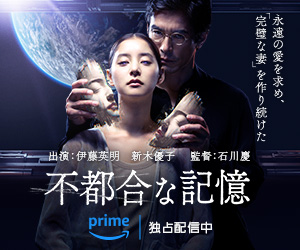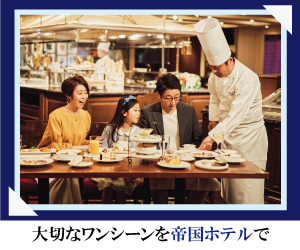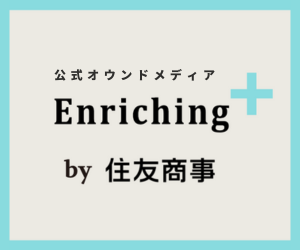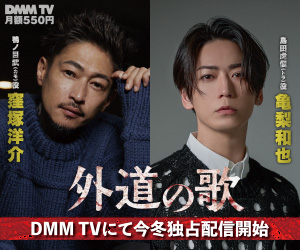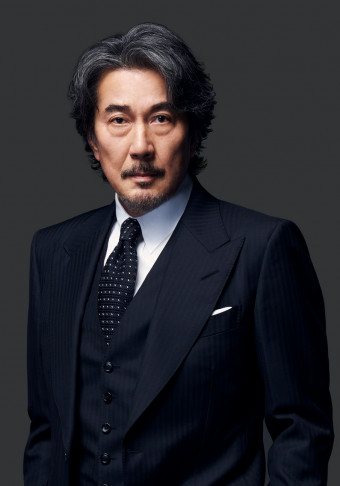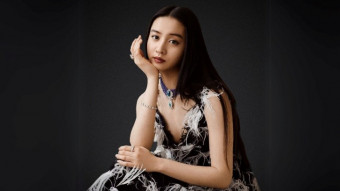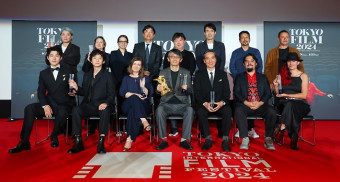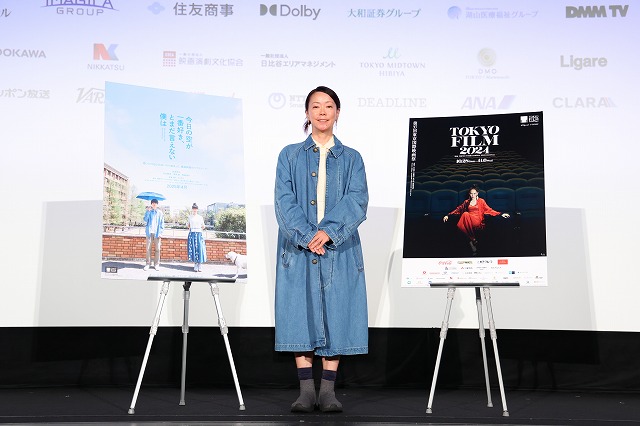
During the Q&A session following the October 29 world premiere of the Japanese film She Taught Me Serendipity, which is screening in the Competition section of the 37th Tokyo International Film Festival, the moderator, Yasuda Yuko, asked how many people in the audience had read the story by Fukutoku Shusuke on which the film was based. About a dozen people raised their hands, but as it transpired, many of the viewer questions had to do with the liberties that the director, Ohku Akiko, had taken with the original story.
Ohku at one point addressed this concern straight on, saying, “When I originally read the story, I couldn’t follow it completely, especially the ending. And while it’s rare to get together with the author of a story when you’re adapting it, I met with Mr. Fukutoku and told him directly that I didn’t plan to use his last scene, and he agreed. The thing is, we don’t know how these characters will live their lives from now on, and I wanted to preserve that notion.”
Without giving anything away, the movie’s premise lends itself to the kind of happy-ever-after conclusion you usually get in romantic comedies, and for the first half of the movie that may be what the viewer expects. Ineffectual, unserious Kansai University student Toru (Hagiwara Riku) develops a crush on an idiosyncratic classmate named Hana (Kawai Yuumi), and they embark on a chaste relationship based on quirky conversations and a slightly skewed outlook on life. Neither has any friends — except for Toru’s linguistically challenged best bud, Yamane (Kurosaki Kodai) — so they can devote most of their attention to each other.
Thus, the viewer floats along on a frictionless, budding love story fully expecting some kind of consummation. Demonstrating why the director, a two-time Audience Award winner at TIFF, deserves to be included in the Competition lineup yet again, not only does Ohku confound expectations, she practically rubs the viewer’s face in the contradictions that ensue.
One audience member asked Ohku why she had felt she needed to “interpret” the story the way she did. Ohku admitted that she was concerned that fans might feel a certain way about it. “I essentially digested the story, which is why the ending is so different,” she said.
Another questioner, after stating he thought it was Ohku’s best film so far, remarked on the shift in tone and wondered how she pulled it off. “The original was a classic boy-meets-girl story told from the perspective of the boy,” the director responded. “But I was more interested in the girl’s side, and decided to enhance the script from that standpoint.” What makes Ohku’s response noteworthy is that for much of the film, we see the development mostly through Toru’s eyes. But due to what can only be characterized as his pathology toward human interactions, he quickly becomes an unreliable observer in the viewer’s mind, and thus, when the story quickly goes south it is at once shocking and perfectly understandable, because Toru is incapable of understanding a woman’s true feelings.
A few viewers were taken by Ohku’s visual choices, and she graciously called on her cinematographer and lighting designer, who were in the audience, to stand up and receive their due. They have done quite interesting things with shadows and ambient lighting (equally interesting as the very dynamic sound design), especially in the centerpiece scene when Toru’s work colleague, Sacchan (Ito Aoi), gives a long, rambling, extremely emotional monologue in the middle of a narrow street.
“In the script, the lighting for that scene is outlined in detail,” said Ohku. “It was supposed to look unnatural, dark but with an orange tinge from the streetlamp, and light from the window of a house.” When someone commented that the lighting in that scene only added to its overwhelming dramatic effect, Ohku concurred, but with a caveat: “The actor became very close to her character, and she was genuinely in tears during that long scene. I sometimes felt as if I were being cruel to put her through that.”
Q&A Session: Competition
She Taught Me Serendipity
Guests: Ohku Akiko (Director)














